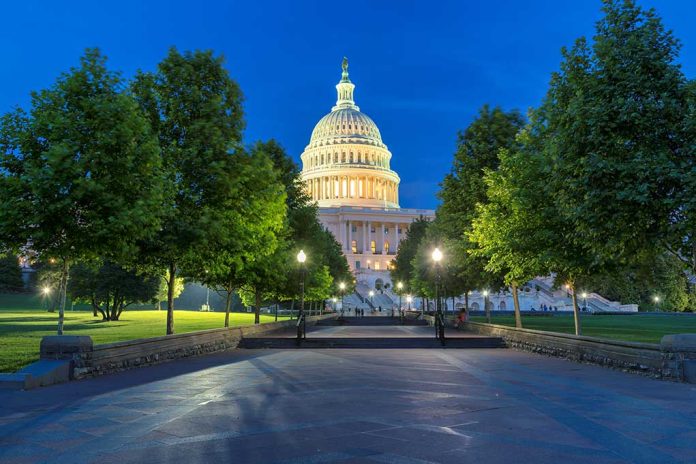
Alaska Republicans are reportedly determined to unseat Rep. Mary Peltola, who just secured a win in her Democratic primary.
At a Glance
- Alaska Republicans aim to beat Rep. Mary Peltola (D) after losing the seat to her in 2022.
- Peltola finished first in the recent top-four nonpartisan primary
- Lt. Gov Nancy Dahlstrom exited the race to consolidate GOP support
- The ranked-choice system led to a GOP split in 2022, benefiting Peltola
- Republicans emphasize the need for unity to beat Peltola in the general election
Peltola’s Journey to The House
Rep. Mary Peltola, a Democrat, won Alaska’s lone congressional seat in 2022 following the death of longtime Republican U.S. Rep. Don Young. Peltola’s victory marked a historic moment as she became the first Alaska Native elected to Congress. She secured her seat by navigating a challenging ranked-choice voting system, which ultimately helped her defeat former Gov. Sarah Palin.
In the recent top-four nonpartisan primary, Peltola finished first, followed by Republicans Nick Begich and Lt. Gov Nancy Dahlstrom. Making waves in the political landscape, Dahlstrom, backed by former President Donald Trump, exited the race to consolidate GOP support and ensure a focused effort to unseat Peltola. The decision by Dahlstrom to withdraw was strategic, aiming to unite Republican voters behind Begich.
Alaska Republicans unite to defeat Mary Peltola https://t.co/m6IcRYWCYq
— The Hill (@thehill) August 25, 2024
The Role of Ranked-Choice Voting
Alaska’s ranked-choice voting system has significantly impacted the political dynamics within the state. In 2022, the system led to a GOP split between Begich and Sarah Palin, which ultimately seemed to benefit Peltola. Many Begich and Palin supporters refrained from ranking the other GOP candidate as their second choice or left it blank altogether, fragmenting the Republican vote.
Primary Results and Voter Turnout
In the recent primary, Peltola secured 50% of the vote, with Begich at 27% and Dahlstrom at 20%. However, voter turnout was historically low, at just 16%. The general election could see different dynamics with higher voter engagement, particularly with the inclusion of a presidential election and two initiatives on the November ballot, which may increase voter turnout.
Despite the robust start, Peltola needs to capture votes from those who did not participate in the primary to secure her position in the general election. It is crucial to note that the primary results reduced the candidate pool from 12 to 4 for the upcoming November election. Peltola is currently ahead of her 11 challengers and is in a strong position for the general election.
Sources
- Peltola Finishes First in Alaska House Primary, With Begich as Top Challenger
- Alaska Republicans unite to defeat Peltola
- Peltola, Begich, Dahlstrom advance to ranked choice November election in Alaska US House race
- Mary Peltola makes history as first Alaska Native sworn into Congress

















